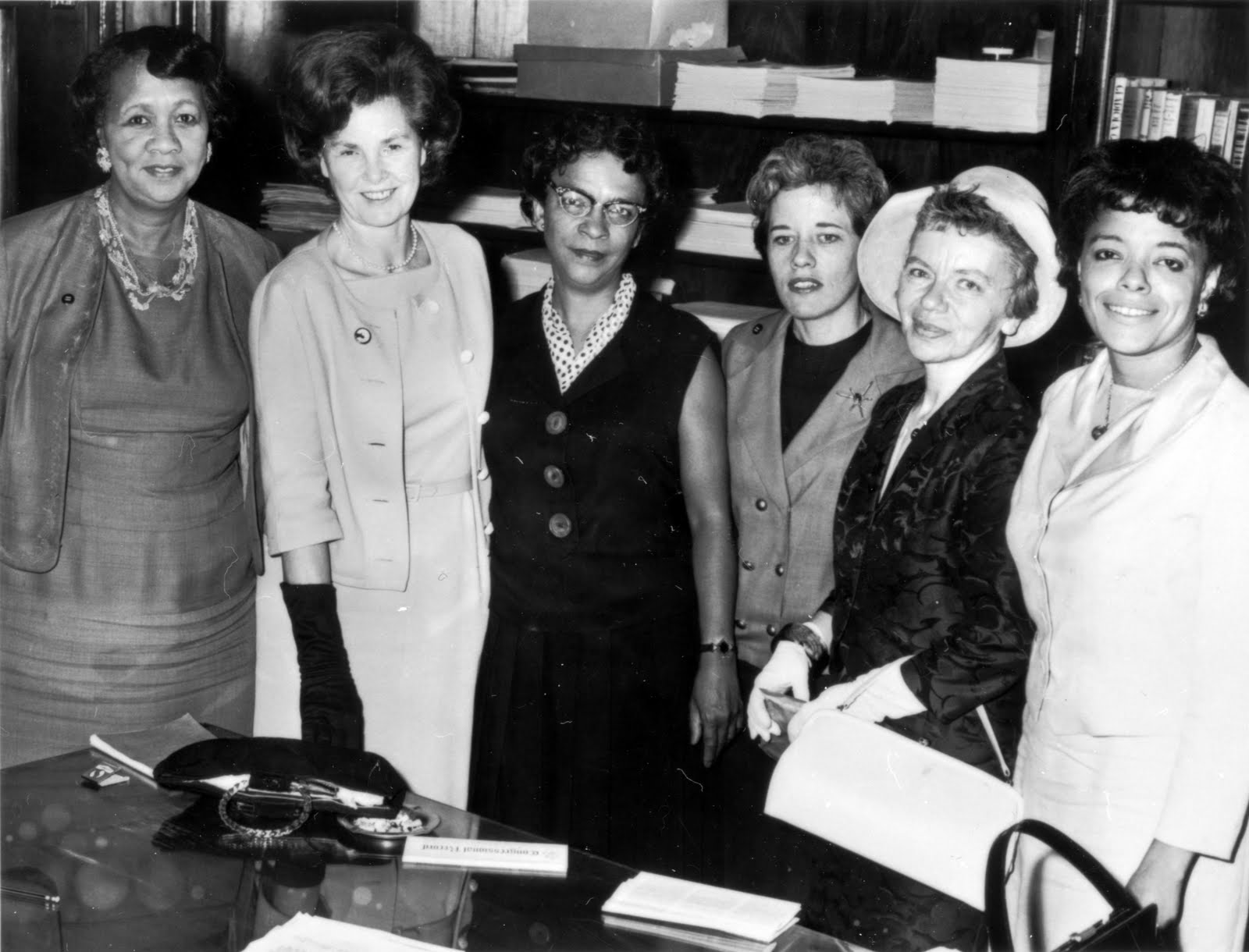

Wednesdays Today is a blog based on the documentary film Wednesdays in Mississippi. This doc in progress chronicles the relationship between Dorothy Height, head of the National Council of Negro Women, and Polly Cowan- an affluent Jewish New Yorker and social activist. In 1964, they created Wednesdays In Mississippi a interfaith and interracial movement of women who changed the political landscape of the United States.
Wednesday, August 18, 2010
MEET THE PRODUCERS OF WIM

What is a Wednesday and WHY is it in Mississippi?
In 1963, a black woman and a Jewish woman formed a political alliance and became like sisters. It was a rare relationship at a time when most black women worked for white women, not with them. But, these weren't ordinary women-one was Dorothy Height, head of the National Council of Negro Women, the other, was Polly Cowan-- wife, mother and heir to the Spiegel fortune.
It was a time of great turmoil and change. Boycotts, fire hoses, growling dogs, angry mobs and four little girls blown up on a quiet Sunday morning filled our TV screens. Men were in front of the cameras, publicly leading the fight to end racial hatred, but in truth, the women were the backbone of this movement. Yet, at the historic 1963 March on Washington, the men wouldn’t allow any woman to give a speech. It was then that Dorothy realized women must take their fate in their own hands.
Dorothy and Polly decided to create Wednesdays in Mississippi, a civil rights project for women, run by women. Their audacious plan would send interfaith and interracial teams of women into Mississippi--the hardened epicenter of segregation-- to secretly meet with their southern sisters. It was a courageous undertaking. Mississippi was a war zone. Churches and temples were being bombed. Civil rights workers were being jailed, beaten and killed. Meeting with outsiders could have dire consequences.
Dorothy and Polly weren't deterred. They combed through their rolodexes, finding women--"The Cadillac Crowd" --to go behind the cotton curtain, to bring in support, to bear witness, and to commit to continuing the struggle when they returned home.
The first team headed to Mississippi on July 7th, 1964, five days after President Johnson signed the Civil Rights Act. Polly and Dorothy were on the team. They traveled to the hinterlands, visited Freedom schools and voter registration projects run by local people and northern college students. They narrowly missed being blown up by a fizzling Molotov cocktail and were confronted by angry patrons when they legally integrated a local restaurant. Wearing white gloves and pearls, "for respectability", they secretly met with a group of southern women. This simple act was revolutionary.
That summer seven teams of Northern women went to Mississippi to meet with more than 200 local women. Along the way, there were challenges, fears, and suspicions, yet hearts and minds were opened. When other civil rights organizations left Mississippi, Polly and Dorothy stayed, working with local women, fighting for quality day care, low-income housing and cooperative farms.
Their friendship endured as the political landscape changed and whites left the movement. They continued to work side by side every day to help women, black and white, northern and southern, until Polly's tragic death in 1976.
Their legacy is reflected in Polly's children, in the lives of Mississippi's women and children, and in the wisdom of 98-year-old Dorothy Height, who says, never underestimate the quiet revolution of women-that, in the long run, it will make the difference.